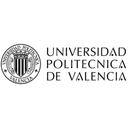This course is part of Arquitectura sostenible: Evaluación interdisciplinar.
This course cannot be purchased separately - to access the complete learning experience, graded assignments, and earn certificates, you'll need to enroll in the full Sustainable Architecture: Interdisciplinary Assessment Professional Certificate program. You can audit this specific course for free to explore the content, which includes access to course materials and lectures. This allows you to learn at your own pace without any financial commitment.
Instructors:
Spanish
Spanish
What you'll learn
How to evaluate the sustainability performance of buildings using materials
How to evaluate energy use from different criteria
How to consider the use of urban infrastructure
How to create a neighborhood model suitable for the analysis and evaluation of urban policies
How to develop a conceptual model based on architectural elements
How to optimize performance by selecting appropriate materials and urban elements
Skills you'll gain
This course includes:
16 Hours PreRecorded video
Graded assignments and exams
Access on Mobile, Tablet, Desktop
Limited Access access
Shareable certificate
Closed caption
Get a Completion Certificate
Share your certificate with prospective employers and your professional network on LinkedIn.
Created by
Provided by

Top companies offer this course to their employees
Top companies provide this course to enhance their employees' skills, ensuring they excel in handling complex projects and drive organizational success.





There are 4 modules in this course
This comprehensive course offers an interdisciplinary approach to sustainability in architecture, focusing on developing a conceptual neighborhood model to evaluate behavior and urban policies. The curriculum progresses through four key areas: first exploring architectural elements with a focus on material performance, then examining methods for optimizing performance through material selection and urban infrastructure components. The third section introduces energy measurement and climate change impact from a global perspective, while the final week covers collaborative assessment techniques directly related to policy implementation. Students will gain practical skills in sustainability assessment applicable to real-world architectural and urban planning challenges.
Relevance of materials in buildings
Module 1
Buildings: behavior, functions and materials
Module 2
Efficiency, sustainability and architecture
Module 3
Integrated design and business models
Module 4
Fee Structure
Individual course purchase is not available - to enroll in this course with a certificate, you need to purchase the complete Professional Certificate Course. For enrollment and detailed fee structure, visit the following: Arquitectura sostenible: Evaluación interdisciplinar
Payment options
Financial Aid
Instructors

4 Courses
Distinguished Leadership in Sustainable Business and Financial Education
Dr. Elena de la Poza serves as Associate Professor in Finance and Economics at Universitat Politècnica de València, where she earned her PhD in Finance in 2008. Her research focuses on sustainability, business impact assessment, and financial modeling, with significant contributions to understanding universities' roles in sustainable development. As Project Manager and Scientific Program Co-Director of the SEED 2024 International Conference on Sustainable Energy Education, she demonstrates her commitment to advancing sustainable education initiatives. Her current work includes leading research on corporate social responsibility transparency, sustainability rankings, and the financial performance of companies in relation to their environmental commitments. Her impact is evidenced through over 25 refereed research papers and 45 congress participations, with recent publications focusing on universities' reporting on SDGs and the sustainability of FinTech companies. Beyond her academic duties in financial, business, and entrepreneurship courses, she actively promotes regional sustainable development through her role in the CoVE SEED project, working to create a learning community focused on renewable energies in the Valencia Community.

4 Courses
Industrial Sustainability Pioneer and Engineering Educator
Dai Morgan is a leading figure in sustainable engineering and manufacturing at the University of Cambridge, where he serves as the Deputy Course Director for the MPhil in Engineering for Sustainable Development. His academic credentials include a Masters Degree in Manufacturing Engineering and a PhD from Cambridge, where his research focused on innovative polymer recycling processes and materials applications. As a key researcher at the EPSRC Centre for Innovative Manufacturing in Industrial Sustainability, Morgan has developed groundbreaking approaches to industrial sustainability, particularly focusing on how manufacturers can improve their operations and decision-making processes while promoting sustainable outcomes. His expertise spans across manufacturing efficiency, sustainable design processes, and supplier relationship management, with a particular emphasis on helping organizations transition toward more environmentally conscious operations without compromising productivity. Through his work with the PrISMS programme and various sustainability initiatives, he has helped numerous SMEs enhance their business operations while reducing both costs and environmental impact. Morgan's research interests extend to investigating how industrial systems can meet global needs while respecting planetary boundaries, and he has been instrumental in developing educational programs that integrate sustainability principles into engineering practice. His contributions to the field include significant work on non-labor productivity improvements, sustainable design methodologies, and the development of frameworks for assessing and implementing sustainable manufacturing practices.
Testimonials
Testimonials and success stories are a testament to the quality of this program and its impact on your career and learning journey. Be the first to help others make an informed decision by sharing your review of the course.
Frequently asked questions
Below are some of the most commonly asked questions about this course. We aim to provide clear and concise answers to help you better understand the course content, structure, and any other relevant information. If you have any additional questions or if your question is not listed here, please don't hesitate to reach out to our support team for further assistance.



